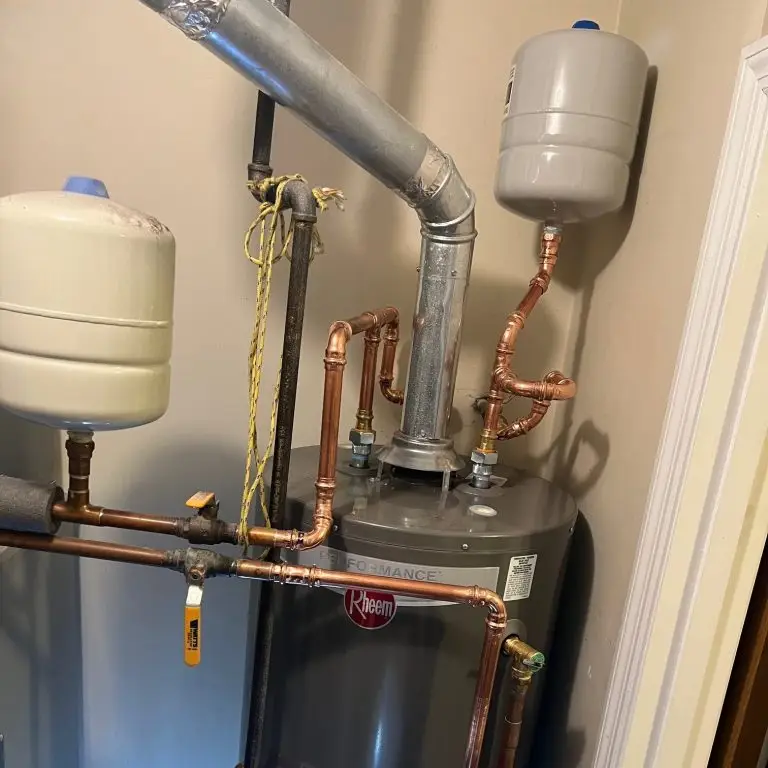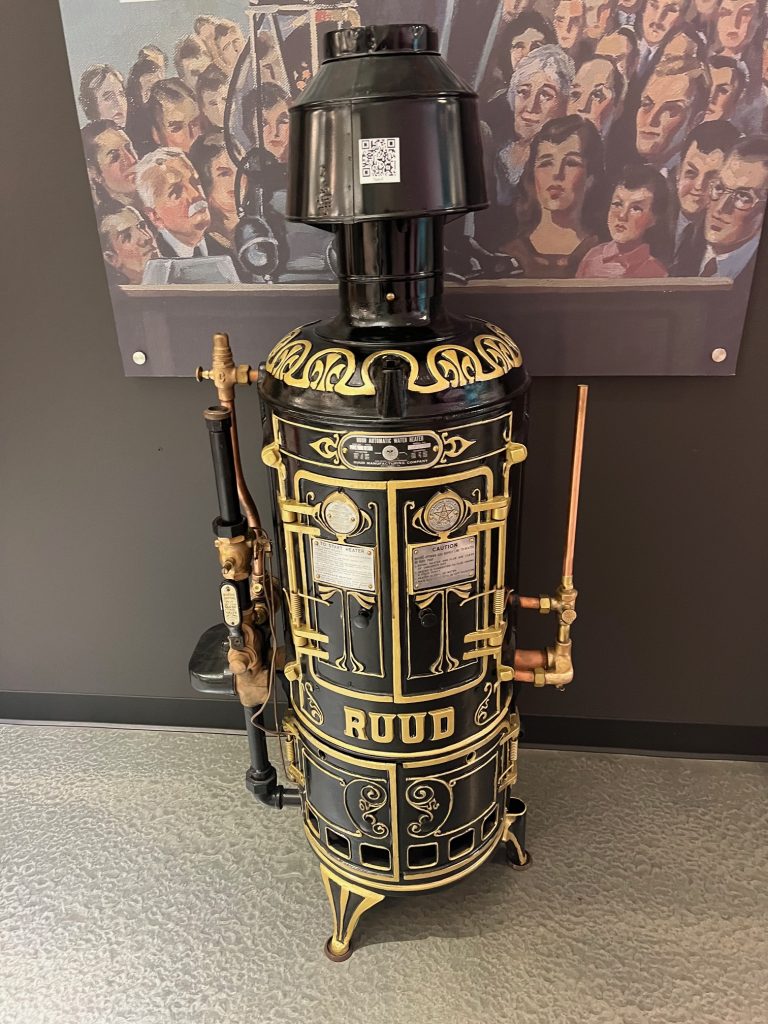
Hamilton County Commercial Water Heater Maintenance Checklist
Commercial Water Heater Maintenance Checklist
Want to discuss your project or get a quote? Call Joe at (513) 400-6401.Commercial water heaters are the backbone of operations in restaurants, hotels, and hospitals. Neglecting their maintenance can lead to inefficiencies, increased energy costs, and even unexpected breakdowns, disrupting your business operations. Commercial water heaters work hard all the time. That’s why it’s essential to check them regularly. If you do, you can catch minor problems before they get bigger and more expensive to fix.
Keeping your water heater clean and checking it on a schedule will work better and last longer. This checklist will help you keep your water heater running properly.

Why Is Maintenance Important?
Regular water heater maintenance helps you save money and energy. It also prevents your business from shutting down if there is no hot water. Cleaning and checking your water heater also helps keep your water clean by stopping dirt and rust from building up inside. As business owners and managers, it’s your responsibility to ensure the proper care of your water heaters. This involves following a maintenance plan, checking the water heater on a schedule, cleaning it regularly, and promptly replacing any faulty parts.
Business owners in Hamilton County OH and building managers should follow a plan to take care of their water heaters. This means:
Safety Steps Before Maintenance
Before you start any work on a water heater, you need to make sure you are safe. Here are some important safety steps to follow. Not following these steps could result in serious injury or even death:- Turn Off the Power and Gas: If your water heater uses electricity, turn off the power. If it uses gas, turn off the gas valve. This helps stop any electric shocks or gas leaks.
- Let It Cool: Wait for the water heater to cool down before you touch it. This helps prevent burns, especially if you need to open it up or drain water.
- Wear Safety Gear: Put on gloves and safety goggles so you don’t touch anything hot or get chemicals in your eyes.
- Work in a Safe Place: Make sure the room has good airflow, especially if you are working on a gas water heater. This guards against breathing harmful gases like carbon monoxide.
- Keep a Fire Extinguisher Nearby: This is handy in case of a small fire while you work.
Check for Gas Leaks:
Before you start, make sure there are no gas leaks. If you smell gas or hear a hissing sound, stop and call for help right away. You can use a gas leak detector or a mixture of soap and water to check for leaks.
Looking Over the Water Heater
It’s important to look at the water heater often to catch problems early.
- Look for Leaks and Rust: Check around the tank and pipes for rust, wet spots, or marks left by water. These could mean there are leaks.
- Check for Damage: Look for dents, cracks, or anything that looks broken on the outside of the heater.
- Notice Unusual Smells: If you smell something strange or see stains on the tank, it could mean the water heater is too hot or has stuff building up inside.
- Watch for Water Stains: Water stains on the floor near the heater can signal a small leak that might turn into a big problem.
- Keep it Clean: Make sure there isn’t dust or dirt around the unit. A clean area helps the water heater work better and keeps it from getting too hot.
Checking the Pipes
The pipes that bring water in and out of the heater are very important.
- Watch for Blockages: Over time, minerals can build up inside the pipes and block the water, making the heater work less well.
- Check for Leaks: Look for any drips, wet spots, or rust near the pipes. Small leaks can waste a lot of water and cost you money.
- Insulate the Pipes: Wrap both the hot and cold pipes with insulation. This stops heat from escaping and makes sure water doesn’t freeze in the pipes during cold weather. It also helps save energy.
Testing the Temperature and Pressure Relief (T&P) Valve
The T&P valve is a safety part that stops the water heater from having too much pressure inside. If this valve breaks, the water heater can get too hot and might even break. To stay safe, test the T&P valve regularly to make sure it works.
To test it, gently lift the valve’s lever. You should see a little bit of water flow out, then stop when you put the lever down. If no water comes out or the water keeps running, the valve needs to be fixed or replaced. Mineral deposits can also make the valve stick, so keep it clean.
Checking the Anode Rod
The anode rod helps keep the inside of the tank from rusting. Over time, this rod gets used up and needs replacing. If it wears out, the tank could start to rust. Check the rod for heavy corrosion (lots of rust or pieces missing). If the rod looks really bad, replace it to protect your water heater. Flushing out the tank helps the rod last longer.
Draining and Flushing the Tank
Over time, stuff like dirt and minerals can build up inside the tank. This makes the water heater work harder and can make it noisy. To clean it out, turn off the power or gas, hook up a hose to the drain valve, and let the water flow out. After it’s drained, run clean water through to rinse out any leftover stuff. If you hear rumbling or popping sounds, it means there’s probably a lot of sediment and the tank needs flushing.
Checking the Heating Element
Electric water heaters use heating elements to warm the water. These parts can get dirty or wear out. Check them to make sure they’re clean and working. If the water isn’t hot enough, or if it takes too long to heat up, you might need to clean or replace the element. If your heater uses gas instead of electricity, check the gas burner area for dirt or rust.
Checking and Adjusting the Thermostat
The thermostat controls how hot your water gets. If it’s set too high, you could waste energy or make the water too hot. If it’s too low, you might run out of hot water. Make sure the thermostat is set to a safe, useful temperature. If the water is the wrong temperature, try adjusting the thermostat or replace it if it’s not working right.
Adding or Checking Insulation
Insulation helps keep the heat inside the tank and pipes, saving energy and keeping the water warm. Check the insulation on the tank and pipes. If it looks old or worn-out, replace it. In cold places, good insulation stops pipes from freezing.
Checking the Venting System (for Gas Water Heaters)
For gas water heaters, it’s very important that the venting works properly. The vent sends gas fumes outside. Check the vent for any blockages like dust or dirt. If you see soot, yellow flames (instead of blue), or smell something odd, get it checked right away. This keeps your building safe.
Replacing Worn-Out Parts
Just like anything else, water heaters can wear out. Check for parts that are old or not working, like thermostats, heating elements, the anode rod, and valves. Replace these before they break to keep things running smoothly.
Listening for Strange Noises
Strange noises like popping, rumbling, or hissing coming from the water heater can be signs of problems. Popping or rumbling usually means there’s sediment inside the tank. Whistling or hissing might mean there’s a pressure problem or a blockage. Fix these problems quickly to stop bigger issues.
Watching Energy Use
If your energy bills go up suddenly, your water heater might not be working right. Compare how much energy your water heater uses every month. If it uses more without giving more hot water, it might need to be cleaned or repaired.
Keeping a Maintenance Log
Keep a notebook or file with all the dates you check, clean, or fix the water heater. Write down what you did and if you replaced any parts. This helps you remember when to do checks and helps anyone else who might need to work on the heater in the future.
Keeping Your Water Heater Working Well
Doing all of these checks and cleanings helps your water heater last longer and work better. If you need help, you can call a professional to fix or check your water heater. That way, your business will always have hot water when you need it!

20+ YEARS OF EXPERIENCE KNOWLEDGE, EXPERIENCE, AND HARD WORK
Here is a list of the townships within the county Joseph Home Improvements provides residential plumbing for:
- Deerfield Township
- Morrow Township
- Turtlecreek Township
- Harlan Township
- Salem Township
Read our Real Google Reviews and see ratings for Morrow, OH plumbers for free!
Your Home Improvement Experts in West Chester, Mason, Loveland, and More!
Joseph Home Improvement is a family business in Morrow, Ohio. We have been helping people with their homes for over 35 years! Our team is friendly and knows a lot about fixing and improving houses.
We can help you with all kinds of jobs, including:
- Licensed plumbing
- Kitchen and bathroom remodeling
- Ceramic tile work
- Hanging and finishing drywall
- Interior painting
